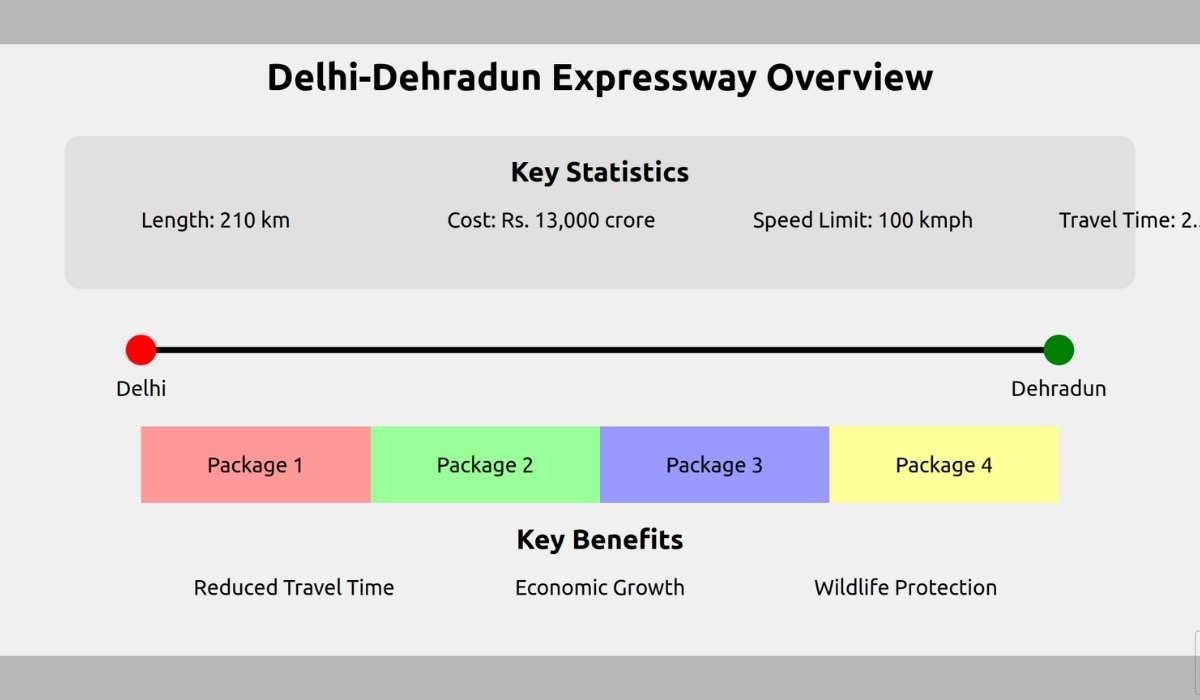Imagine stepping into your dream home, only to discover it’s a far cry from what you were promised. This unfortunate scenario was all too common in India’s real estate market before 2016. However, the introduction of the Real Estate Regulatory Authority (RERA) has dramatically transformed the property-buying experience. But the million-dollar question remains: Does RERA approval truly guarantee a risk-free investment?
In this comprehensive guide, we will explore the intricacies of RERA approval, shedding light on its significant benefits and the hidden risks every homebuyer must be aware of. Whether you’re a first-time buyer or a seasoned investor, understanding the reality behind RERA-registered projects is essential for making informed decisions in today’s complex real estate market.
What is RERA?
The Real Estate Regulatory Authority (RERA) Act, introduced by the Government of India in 2016, is a landmark legislation aimed at regulating the real estate industry. Its primary objectives include:
- Protecting homebuyers’ rights
- Ensuring transparency in property transactions
- Holding developers accountable
- Establishing guidelines for fair practices among developers, agents, and buyers
RERA mandates that developers register their projects under the act, ensuring:
- No false advertisements
- Timely project delivery
- Efficient dispute resolution
It’s important to note that RERA regulations may vary from state to state, addressing specific local construction needs.
The RERA Approval Process: What You Need to Know
Before diving into the benefits and risks, it’s crucial to understand the RERA approval process:
Unlock Your Dream Home Today!
Get personalized real estate insights delivered straight to your inbox.
Documentation Requirements:
- Company and promoter details
- Information on projects completed in the last five years
- Financial statements
- Land title documents
- Approvals from various authorities (commencement certificate, sanction letter, site plan approval, etc.)
RERA’s Role:
- Verifies that the builder has obtained the necessary approvals
- Allows marketing and selling of the project only after verification
Limitations:
- Most documentation processes remain offline, complicating thorough verification
- RERA may rely on third parties for document verification due to limited infrastructure
7 Critical Benefits of RERA Approval
1. Financial Security
RERA mandates that developers allocate a percentage of funds to an escrow account, which can only be used for construction-related activities. This reduces the risk of fund mismanagement and project delays.
2. Clarity on Carpet Area and Pricing
RERA requires developers to sell property based solely on its carpet area, eliminating confusion and potentially reducing additional costs.
3. Structural Defect Liability
RERA holds developers accountable for structural defects, ensuring that buyers are protected from unexpected financial burdens. Developers are required to fix any damages at their own expense, even after project completion.
4. Protection Against False Advertisements
Under RERA, developers must provide accurate and verifiable information when promoting their projects, safeguarding buyers from exaggerated claims or false advertising.
5. Consumer Protection
RERA approval ensures that projects meet specific quality standards, protecting buyers from unscrupulous developers and substandard construction practices.
6. Transparency and Information Accessibility
RERA mandates comprehensive disclosure of project information, including developer details, layout plans, timelines, financials, and legal approvals.
7. Efficient Dispute Resolution
RERA provides a streamlined dispute resolution mechanism through adjudicating officers and appellate tribunals, ensuring swift and fair conflict resolution.
The Hidden Risks: Why RERA Approval Isn’t a Silver Bullet
Despite its benefits, RERA approval does not guarantee a completely risk-free investment. Here are some hidden risks to consider:
Fake Documentation and Fraud
In Maharashtra, 65 builders submitted fake documents and obtained RERA approval, which were only discovered after extensive sales. This highlights the potential for fraud within the RERA system.
Financial Fraud and Its Impact
While RERA mandates separate escrow accounts for each project, it does not check legal cases against the builder. This can lead to project delays or stalling if the builder faces legal troubles or insolvency.
Slowdown in Sales
Economic downturns or poor brand reputation can lead to slow sales, causing:
- Cash flow problems for the builder
- Construction delays
- Existing buyers delaying payments
- New buyers hesitating to invest
RERA cannot intervene in such market-driven situations, potentially leaving projects stuck indefinitely.
RERA Extension and Cancellation Risks
RERA can grant project extensions or cancel a builder’s registration, both of which can create new problems for buyers:
- Extensions may lead to additional pre-EMI interest and rent expenses for buyers
- Cancellation does not resolve existing buyer problems and can create new issues, such as finding a new developer
How to Identify Red Flags in RERA-Registered Projects
To protect yourself, be on the lookout for these warning signs:
- Extension Certificate: Extensions beyond six months (excluding COVID-related extensions) indicate potential issues.
- Quarterly Progress Report: Lack of updates suggests completion problems.
- Construction Status: Significant deviations from the expected timeline are red flags.
- Legal Cases: Multiple complaints against the project indicate serious issues.
- Project Promoters: Be cautious of projects with multiple landowners, as disputes can lead to long-term delays.
- Developer Track Record: Review the developer’s recent projects for patterns of extensions, legal cases, or customer complaints.
Conclusion: Balancing the Benefits and Risks of RERA Approval
RERA approval has undoubtedly brought significant positive changes to India’s real estate market, offering increased transparency, accountability, and protection for homebuyers. The benefits of financial security, clear pricing, consumer protection, and efficient dispute resolution are invaluable for those navigating the complex world of property investment.
However, as we’ve discussed, RERA approval is not a guarantee of a risk-free investment. The potential for fraud, financial mismanagement, and market-driven challenges still exists, even within the RERA framework.
So, what’s the best course of action for a savvy homebuyer? The key lies in leveraging the benefits of RERA while remaining vigilant and proactive:
- Thoroughly research the developer’s track record and reputation
- Carefully review all RERA-related documents for the project
- Be alert for red flags and potential issues
- Consider investing in projects by reputable and credible builders
- Stay informed about market conditions and economic factors that could impact your investment
Remember, while RERA approval provides a solid foundation for safer real estate investments, your due diligence remains crucial. By combining the protections offered by RERA with your own careful research and judgment, you can navigate the real estate market with greater confidence and security.
As the RERA system continues to evolve and strengthen, we can look forward to an even more transparent and buyer-friendly real estate landscape in India. But for now, let RERA approval be your starting point, not your final destination, in the journey to finding your dream home.
The Real Estate Regulatory Authority (RERA) Act, introduced by the Government of India in 2016, is aimed at regulating the real estate industry, protecting homebuyers' rights, ensuring transparency in transactions, and holding developers accountable.
RERA approval offers several benefits, including financial security through escrow accounts, clarity on carpet area and pricing, structural defect liability, protection against false advertisements, consumer protection, transparency, and efficient dispute resolution.
Yes, despite the benefits, risks include potential fake documentation, financial fraud, market-driven sales slowdowns, and the possibility of RERA granting project extensions or cancellations which could create new problems for buyers.
RERA mandates that developers allocate a percentage of funds to an escrow account, ensuring that the funds are used solely for construction purposes, thereby reducing the risk of fund mismanagement.
Buyers should be cautious of projects with extension certificates beyond six months, lack of quarterly progress updates, significant deviations in construction timelines, multiple legal complaints, and a poor track record of the developer.
No, RERA approval does not guarantee a completely risk-free investment. Risks such as fraud, financial mismanagement, and economic factors can still impact projects.
Developers must provide company and promoter details, information on completed projects, financial statements, land title documents, and various approvals from authorities like commencement certificates.
RERA requires developers to provide accurate and verifiable information in their project promotions, preventing exaggerated claims and ensuring that buyers are not misled.
RERA verifies that builders have obtained the necessary approvals before allowing them to market and sell their projects, helping to ensure compliance with regulations.
Homebuyers should research the developer's track record, review all RERA-related documents, be alert for red flags, and consider investing in projects by reputable builders while staying informed about market conditions.
DISCLAIMER
The information provided on this website is for general informational purposes only. While we strive to keep the content up-to-date and accurate, we make no representations or warranties of any kind, express or implied, about the completeness, accuracy, reliability, suitability, or availability of the information, products, services, or related graphics contained on this website.
In no event will we be liable for any loss or damage including without limitation, indirect or consequential loss or damage, or any loss or damage whatsoever arising from loss of data or profits arising out of, or in connection with, the use of this website.
Real Estate Investment Risks
Real estate investments involve significant risks and market volatility. Property values, rental rates, and market conditions can fluctuate. Past performance is not indicative of future results.
Before Making Real Estate Decisions
Before making any real estate decision, we strongly advise you to:
- Conduct thorough due diligence
- Consult with qualified legal, financial, and real estate professionals
- Carefully review all relevant documents and contracts
- Consider your personal financial situation and investment goals
This website does not provide legal, financial, or investment advice. All content is for informational purposes only and should not be construed as professional advice or recommendations.
By using this website, you acknowledge and agree to these terms. We reserve the right to modify this disclaimer at any time without notice.







